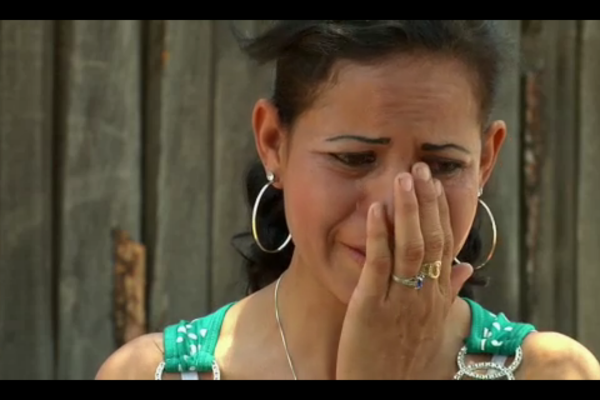What would you do if you were offering a voluntary service, like medical or pastoral care to a vulnerable population, and the clients repeatedly spoke of abuses by a specific perpetrator? You would be a “mandated reporter,” which for the caring professions means you must report certain cases of abuse to authorities. But then you find out that federal employees—law enforcement, in fact—are committing the atrocities. How do you call the cops on the cops?
This was my dilemma as I started working on the Mexico-side of the Sonora-Arizona border washing blistered feet and bandaging wounds of migrants who were just repatriated back to Mexico.
We set up the Nogales Migrant Aid Station to provide basic care to upwards of 1,200 deported people each day. But we did not expect that human rights documentation would become the most pressing part of that work. With each Homeland Security busload of migrants being released from Border Patrol custody, we listened and then documented case after case of abuse.
The abuse involved cussing and yelling, being pushed into barbed wire fencing, sexual assault, denial of life-saving medical care, denial of adequate food and water to children and the list continues.
“They treated us like dogs,” I heard many times. With every tear and bruise, the fury was building inside of me. No one deserves this kind of treatment. As Americans, we felt responsible to do something to change the system that allowed this abuse to occur, not even knowing at the time what we were up against.
That was in 2006. We (No More Deaths, with partners) have now released two groundbreaking reports on thousands of Border Patrol violations of human rights. We have spoken before Congress and international groups like the United Nations. We have sat down with the heads of Border Patrol, and we worked within their system of reporting incidents—proving to be ineffective and lacking transparency.
U.S. Border Patrol is the largest law enforcement agency in the country, and they have no legally enforceable standards for how they treat people in their custody, nor do they have (or allow) community and independent oversight.
When Border Patrol shoots and kills a migrant, border human rights groups have to fight for investigation, let alone a prosecution.
When humanitarians leave full jugs of water on heavily traveled migrant trails in the remote desert, they have been charged with criminal littering, yet there is evidence that Border Patrol slashes and stomps on this same water that could simply save a life.
The political climate around immigration and border enforcement is trying to convince us that through cruelty we attain our security. This culture of impunity occurs in the name of Homeland Security, and in my name and your name, too. But border security that is built by degrading life and dignity is not real security.
This has now been declared a “Need to Know” issue. On July 20, PBS aired the second in a series covering human rights abuses on the border. Watch the trailer and both episodes online. If momentum builds through the concern of people like us, there will have to be more accountability and transparency in this system.
In Proverbs 31 there is a warning about kings and rulers who drink wine and end up trampling their own decrees and the rights of the vulnerable. In response to this, we are admonished “Open your mouth, judge righteously, and defend the rights of the afflicted and needy,” (verse 9).
The leaders of Homeland Security appear to be acting intoxicated by their power and impunity. As Christians, we are mandated reporters, not through federal law, but God’s law. When we open our mouths with those who have suffered and reject violent systems, those abusing power will be sobered.
Maryada Vallet works with No More Deaths, a humanitarian initiative on the U.S.-Mexico border, which promotes faith-based principles for immigration reform.
Got something to say about what you're reading? We value your feedback!
